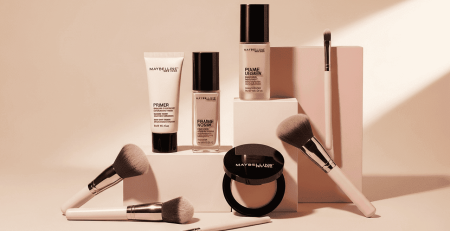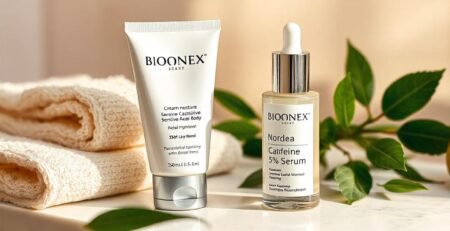In today’s fast-paced world, many people turn to vitamins and dietary supplements to fill nutritional gaps and support overall health. But with countless options on the market, it’s easy to feel overwhelmed. How do you choose the right vitamins for your unique needs? This comprehensive guide will help you make informed decisions based on your health goals, lifestyle, and scientific evidence.
Thank you for reading this post, don't forget to subscribe!Why Vitamins Matter for Your Health
Vitamins are essential micronutrients your body needs for countless biological processes, including energy production, immune defense, and cell repair. Deficiencies can lead to health problems ranging from fatigue to more severe conditions like osteoporosis or nerve damage. According to the National Institutes of Health (NIH), most people can get enough vitamins from a balanced diet rich in fruits, vegetables, lean proteins, and whole grains. However, certain life stages, health conditions, or dietary restrictions may increase your need for specific vitamins.
Know Your Specific Needs First
Before buying any supplement, it’s crucial to identify your individual requirements. Factors to consider include:
-
Age and Gender: Nutritional needs change with age. For example, women of childbearing age need more folic acid, while adults over 50 may require extra vitamin B12 and D.
-
Health Status: Conditions like anemia, osteoporosis, or digestive disorders can affect vitamin absorption and increase needs for specific nutrients.
-
Lifestyle Choices: Vegans, vegetarians, athletes, and people with restrictive diets often have unique vitamin requirements.
-
Geographic Location: If you live in northern regions with little sunlight in winter, you might need extra vitamin D.
Consulting your doctor or a registered dietitian for blood tests and a personalized assessment is the best way to determine deficiencies or special needs.
Focus on Food First
Leading health organizations like the World Health Organization (WHO) and American Heart Association emphasize that whole foods should always be the primary source of nutrients. Vitamins from food come with fiber, antioxidants, and other beneficial compounds that supplements can’t replicate. For example:
-
Citrus fruits, berries, and peppers are rich in vitamin C.
-
Dairy, fatty fish, and eggs provide vitamin D.
-
Leafy greens, beans, and nuts are good sources of B vitamins and magnesium.
Only use supplements when your diet cannot supply adequate amounts.
Choose High-Quality Supplements When Needed
If tests or medical advice show you need supplementation, quality is key. Here’s how to choose wisely:
-
Look for Third-Party Certification: Certifications from organizations like USP (U.S. Pharmacopeia), NSF International, or ConsumerLab indicate the product meets purity and potency standards.
-
Avoid Mega Doses: More isn’t always better. Excessive intake of some vitamins (e.g., A, D, E, K) can cause toxicity, as these are fat-soluble and stored in the body.
-
Check Labels Carefully: Ingredients should be clearly listed without unnecessary fillers, artificial colors, or allergens.
-
Choose Bioavailable Forms: For better absorption, select bioavailable forms such as methylcobalamin for vitamin B12 or cholecalciferol for vitamin D.
Don’t Fall for Marketing Hype
Beware of misleading claims like “miracle vitamin” or promises to cure diseases overnight. The U.S. Food and Drug Administration (FDA) does not regulate supplements as strictly as prescription medications, so it’s important to buy from reputable brands and avoid exaggerated marketing.
Special Considerations for Popular Vitamins
Here’s what experts recommend for some commonly supplemented vitamins:
-
Vitamin D: Essential for bone health and immunity. The NIH recommends 600-800 IU daily for adults, but higher doses may be needed if you’re deficient.
-
Vitamin B12: Vital for nerve health and red blood cell production. Vegans often need supplements because B12 is found almost exclusively in animal products.
-
Iron: Necessary for oxygen transport in the blood. Women with heavy menstrual periods and people with anemia may need supplementation, but excess iron can harm organs, so always test first.
-
Folic Acid: Crucial for pregnant women to reduce the risk of birth defects. The CDC recommends 400-800 mcg daily during childbearing years.
Talk to Your Healthcare Provider
Self-diagnosing vitamin deficiencies or taking random supplements can do more harm than good. Interactions with medications, other nutrients, or health conditions are possible. For example, vitamin K can interfere with blood thinners, while high-dose vitamin E may increase bleeding risk.
Your healthcare provider can recommend appropriate blood tests, guide you in selecting the right product and dosage, and monitor your response to ensure safety and effectiveness.
Conclusion
Choosing the right vitamins for your body is a personal decision that should be based on solid evidence and professional guidance, not marketing trends. Start by eating a balanced, nutrient-rich diet and only consider supplements when necessary. With a personalized approach, you can support your health safely and effectively.












Leave a Reply